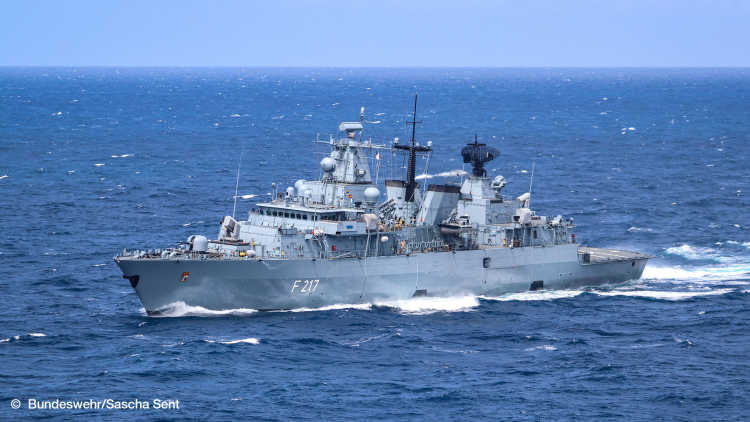- Startseite
- Forschung & Transfer
- Forschungsprojekte
- Transforming Orders: How ‘Indo-Pacific’ Geopolitics Reconstruct Maritime Space and Alter the Law of the Sea’s Territorial Sovereignty and Freedom of the Seas Norms
Transforming Orders: How ‘Indo-Pacific’ Geopolitics Reconstruct Maritime Space and Alter the Law of the Sea’s Territorial Sovereignty and Freedom of the Seas Norms
Maritime territorial disputes in the East and South China Seas and confrontations between China and the United States over the freedom of navigation have put questions of maritime governance high on the political agenda. This research project places Indo-Pacific maritime politics in a broader context and analyses how discourses and practices in China, India, the US, Japan and Australia alter (perceptions of) international order(s) and of the international law of the sea.
DFG, 2021-2023
Forschungsfragen
How do international norms structure maritime space, and how do social constructions of space, conversely, affect the interpretation and application of norms?
Beitrag zu internationaler Forschung
Through analysing major actors’ dialectical interaction over two key international norms, the study will provide a succinct account of transformations in international order(s). Asking the primary question how norms structure maritime space and how, conversely, social constructions of space affect the interpretation and application of norms, allows it to overcome three shortcomings in the existing literature; the scarcity of critical norms and political geography research beyond the Euro-Atlantic, the neglect of the Indian Ocean region in International Relations, and the dichotomization of land and maritime space. This objective informs three secondary research questions: First, how were the territorial sovereignty and freedom of the seas norms defined, and how did they relate to one another, at the time of the UNCLOS signing in 1982? Second, how have regional actors’ views and practices of the territorial sovereignty and of the freedom of the seas norms evolved since the 1980s? Third, how have the regional actors’ converging or diverging practices altered (perceptions of) international order(s) and international law?
Forschungsdesign und Methoden
Social realities are made up from discursively produced structures of signification; discourses make intelligible ‘ways of being in, and acting towards, the world, and of operationalizing a particular “regime of truth” while excluding other possible modes of identity and action’ (Milliken 1999: 229). Discourses operate in that they provide individuals with taken-for-granted knowledge about social realities, which enables them to identify themselves, other subjects and objects (including their attributes) and to relate them all to one another. Hence, any effort to understand a given reality and pertaining possibilities for change requires researchers to draw out the ‘efforts made to stabilize and fix dominant meanings,’ study ‘“subjugated knowledges,” alternative discourses excluded or silenced by a hegemonic discourse,’ and explain how these alternative discourses work, in relation or resistance, to the dominant knowledge/power structures (Milliken 1999: 230). Therefore, the study analyses the parallel, overlapping, competing and mutually reinforcing discourses that establish seemingly fixed social norms and boundaries as frames for the ordering of social worlds (Mutlu & Salter 2013). Through a process wherein the analysis of empirical evidence goes hand in hand with theoretical abstraction, sometimes referred to as grounded theorising, the study will answer the research questions in the form of a thick description. That is, discourses are understood as series of specific linguistic, aesthetic and pictorial representations and practices that constitute both subjects and objects, and thereby render certain political and ethical outcomes more and others less possible (Bialasiewicz et al. 2007). Since this understanding involves the ideational and the material, the linguistic and the non-linguistic, discourses are performative. Performative means that discourses constitute the objects of which they speak. Thus, the study looks for what William Connolly (2004; 2005: 869) termed emergent causalities: Rather than first separating factors for then showing how one of them is the basic cause, or how they cause one another, the present study understands causality as the morphing of various relations of dependence into ‘complexities of mutual imbrication’, ‘forging a qualitative assemblage resistant to classical models of explanation’.





